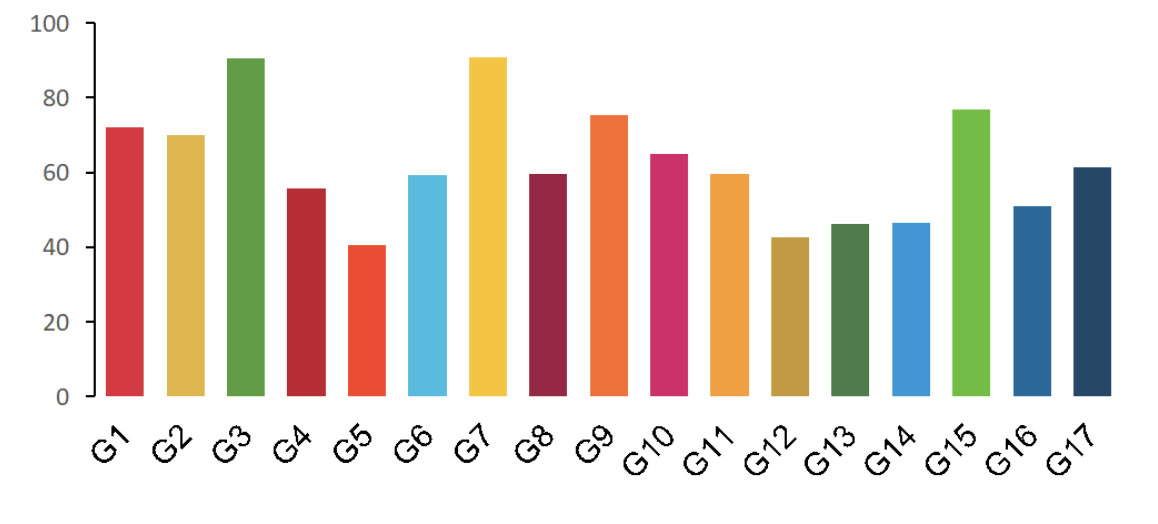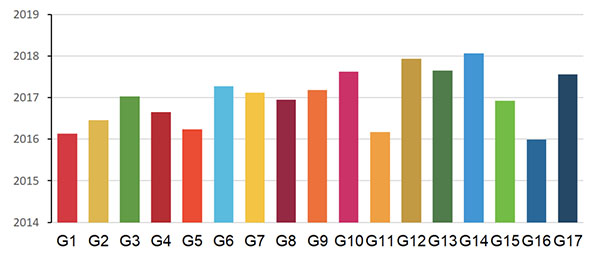By Yongyi Min
Timely, quality, open, and disaggregated data are vital in enabling governments, development partners, international organizations, civil society, the private sector, and the general public to make informed decisions for achieving the SDGs. The importance of data and statistics has never been clearer than during the COVID-19 crisis.
Statisticians have been working at warp speed to keep delivering much needed data.
Such data are critical in understanding, managing, and mitigating effects of the pandemic – whether human, social, or economic – and in guiding decision-making at each stage, with life and death implications.
Serious Data Gaps Remain in Assessing Country-level Progress Towards SDGs
Despite their importance, basic health, social, and economic data are often absent, particularly in many developing countries. Many of the data challenges encountered during the first five years of SDG implementation have severely limited both COVID-19 responses and the full implementation of the SDGs.
Based on the analysis from The Sustainable Development Report 2020, for four of the 17 Goals (SDG 5 (gender equality), SDG 12 (responsible consumption and production), SDG 13 (climate action) and SDG 14 (life below water)), less than half of the countries have internationally comparable data in the Global SDG Indicators Database. The lack of country-level data is particularly worrisome for SDG 5, where on average only about four in ten countries have data available. What’s more, even countries with available data have only a small number of observations over time, making it difficult for policymakers to monitor progress and identify trends.
The table below illustrates this challenge with data coverage, showing the percentage of countries or areas with available data (weighted average across indicators), by Goal.

This snapshot of data availability also shows that a large portion of the SDGs’ 231 indicators are available only with a significant time lag. For instance, in at least half of countries, the latest data point available for poverty-related indicators (SDG 1) is for 2016 or earlier. A similar situation is found for indicators on gender equality (SDG 5), sustainable cities and communities (SDG 11), and peace, justice, and strong institutions (SDG16). In addition, the most vulnerable populations who need help the most remain invisible, such as older persons, persons with disabilities, and refugees.
This table shows the un-timeliness of available data, indicating the most recent year available (weighted average of the median country by indicator), by Goal.

The Pandemic is Jeopardizing the Production of Data for Achieving the SDGs
Amid increasing recognition of the importance of data, the COVID-19 crisis is disrupting routine operations throughout global statistical and data systems. Two recent surveys conducted by the UN and the World Bank (with responses from 100 countries) show that the pandemic has affected the operations of the vast majority of national statistical offices (NSOs). Low- and middle-income countries face the highest level of disruption to their operations and have the greatest needs in terms of technical assistance, capacity building, and financial resources.
If these needs are not filled, they will have a lasting effect on countries’ ability to produce timely and disaggregated data for a large number of SDG indicators, not only creating a massive setback in our ability to support evidence-based policies for the implementation of the SDGs, but also exacerbating global data inequalities.
A New Global Network Connects Data Experts Around the World
The Statistics Division of the UN Department of Economic and Social Affairs (DESA) is excited to launch the Global Network of Data Officers and Statisticians to connect statisticians, data experts, and geospatial information experts around the world to share knowledge on new data solutions and technologies, to improve collaboration, and to forge partnerships.
The main objective of the Network – which will be launched at the virtual 2020 UN World Data Forum on 20 October 2020 – is to help national governments build resilient and sustainable national data and information systems for the full implementation of the SDGs through collaboration, coordination, knowledge sharing, networking, and technical support.
The Network brings together statisticians, data experts and scientists, and geospatial information experts from national statistical systems and regional and international organizations, and data officers from UN Resident Coordinator Offices.
This Network is built on the ‘Yammer’ platform, and provides many advantages to members of the network, allowing them to:
- Increase collaboration among NSOs and national statistical systems, UN Resident Coordinator Offices, and regional and international organizations;
- Share knowledge and best practices on the production and dissemination of data and official statistics for SDG implementation and monitoring;
- Build new partnerships and foster synergies in data development to support the production and dissemination of data and official statistics for SDG implementation, monitoring and reporting;
- Get support from a pool of experts on different topics and from different statistical domains, related to data and statistics for SDG implementation, monitoring and reporting;
- Connect with colleagues anywhere and anytime through the web browser and the easy-to-use mobile application for Android and iOS; and
- Share, comment, and celebrate the launch of new tools, data solutions, reports, or events.
Around the world, statisticians have been working at warp speed to set up mechanisms to ensure operational continuity by adapting and innovating data production methods and processes to deliver the much-needed data. These initiatives need to be scaled up if we are to fully inform policy responses to the crisis and support SDG acceleration efforts over the coming decade.
The Global Network of Data Officers and Statistician aims to fill this need, and we look forward to sharing more information during the launch event at the 2020 Virtual UN World Data Forum.
The author of this guest article, Yongyi Min, is Chief of Sustainable Development Goal Monitoring Section at the UN Department of Economic and Social Development’s (DESA) Statistics Division.

